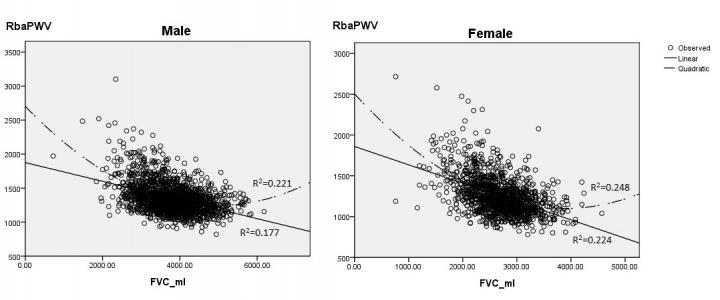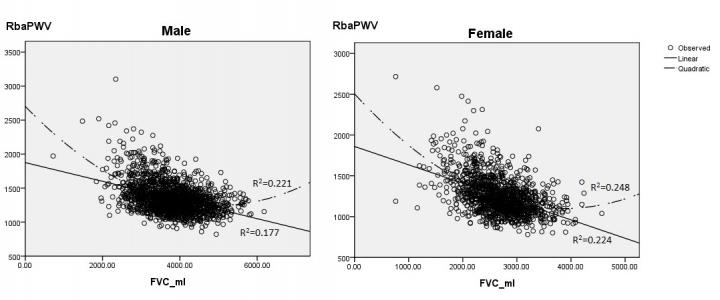
Credit: CHEST
GLENVIEW, IL, September 27, 2017 – Increased arterial stiffness is a known predictor of cardiovascular diseases in different populations, including healthy subjects and patients with hypertension, diabetes, or renal disease. A new study examining arterial stiffness in a large population determined that both restrictive spirometry pattern and reduced forced vital capacity (FVC) were associated with a higher risk of arterial stiffness not only in men but also in women. The investigators found that arterial stiffness increased fourfold when FVC decreased. Their findings are published in the August issue of CHEST.
Arterial stiffness refers to an artery's diminished ability to expand and contract with changes in pressure. The less elasticity an artery has, the harder the heart has to work to pump blood through it, which can contribute to cardiovascular problems. Studies have shown that diseases like chronic obstructive pulmonary disease (COPD) that impede breathing can lead to arterial stiffness. For this study, investigators used brachial ankle pulse wave velocity (baPWV) to measure arterial stiffness.
"The most significant results of our study were that FVC was negatively associated with the brachial ankle pulse wave velocity (baPWV) level in both genders, and restrictive spirometry pattern was positively associated with increased arterial stiffness in both males and females after adjustment for other clinical variables," explained lead investigators Jin-Shang Wu, MS, Yi-Ching Yang, MPH, and Chih-Jen Chang, MD, Department of Family Medicine, College of Medicine, National Cheng Kung University, Taiwan.
This study included more than 2,900 participants (1,709 men and 1,252 women from 18-88 years of age) who underwent a health examination at National Cheng Kung University Hospital from October 2006 to August 2009.
Some prior studies had shown an association between arterial stiffness and reduced FVC but failed to define pulmonary function impairment as the restrictive type. Other studies used only a few subjects or only focused on men. "To our knowledge, this is the first study finding an inverse relationship between restrictive spirometry pattern/reduced FVC and arterial stiffness," said the authors. "The mechanism of reduced lung function and arterial stiffness is not fully understood, but their relationship may be linked by a cardiovascular risk factor and systemic inflammation."
As the rate of cardiovascular disease continues to climb around the globe, finding more ways to identify problems early becomes increasingly important. This link between reduced spirometry pattern and increased arterial stiffness is an important piece of information that may provide better insights for intervention and prevention.
"Clinically, assessment and follow-up of arterial stiffness should be considered in individuals with restrictive spirometry pattern," advised the authors.
###
Media Contact
Andrea Camino
[email protected]
224-521-9513
@elseviernews
http://www.elsevier.com





